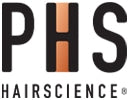Dealing with Postpartum Hair Loss: Advice for New Mothers in Singapore
Becoming a new mother is an exhilarating journey filled with joy and challenges. Among the many changes your body undergoes during and after pregnancy, postpartum hair loss is one that can be particularly distressing. This temporary condition, known as telogen effluvium, affects many new mothers. Here’s a guide to understanding postpartum hair loss and tips on managing it, tailored specifically for new mothers in Singapore.
Understanding Postpartum Hair Loss
Postpartum hair loss is a common condition that occurs due to hormonal changes after childbirth. During pregnancy, high levels of estrogen prolong the growth phase of hair, resulting in thicker, fuller hair. After delivery, estrogen levels drop, causing more hair follicles to enter the shedding phase simultaneously. This can lead to noticeable hair thinning and shedding a few months after giving birth.
1. Be Gentle with Your Hair
New mothers should adopt gentle hair care practices to minimize breakage and further hair loss:
- Avoid Tight Hairstyles: Refrain from pulling your hair back tightly in styles like ponytails or braids, which can cause tension and breakage.
- Use a Wide-Tooth Comb: Gently detangle your hair with a wide-tooth comb to prevent unnecessary pulling and tugging.
- Limit Heat Styling: Minimize the use of heat styling tools like blow dryers, straighteners, and curling irons, which can weaken hair.
Product Recommendation: Consider using the ADV Nutrition Conditioner from PHS Hairscience. This conditioner provides deep hydration and nourishment, making your hair more manageable and less prone to breakage.
2. Maintain a Healthy Diet
A balanced diet rich in essential nutrients is crucial for hair health. Ensure your meals include:
- Protein: Found in lean meats, fish, eggs, and beans, protein is vital for hair growth and strength.
- Iron: Leafy greens, red meat, and lentils are excellent sources of iron, which supports healthy hair follicles.
- Vitamins: Vitamins A, C, D, and E, as well as biotin and zinc, are essential for hair health. Include a variety of fruits, vegetables, nuts, and seeds in your diet.
3. Manage Stress
The postpartum period can be stressful, which can exacerbate hair loss. Finding ways to manage stress is crucial for both your overall health and hair:
- Exercise: Gentle exercises like walking, yoga, and pilates can help reduce stress and improve circulation, promoting hair growth.
- Sleep: Prioritize getting enough rest. While this can be challenging with a newborn, try to nap when your baby sleeps and seek help from family and friends.
- Mindfulness Practices: Techniques like meditation and deep breathing exercises can help calm your mind and reduce stress levels.
4. Consider Hair-Friendly Supplements
If you’re struggling to get all the necessary nutrients from your diet alone, consider taking supplements. Consult with your healthcare provider before starting any new supplement to ensure it’s safe for you and your baby, especially if you’re breastfeeding.
Product Recommendation: The ADV Elixir from PHS Hairscience is a powerful scalp treatment that detoxifies and rejuvenates the scalp, promoting a healthy environment for hair growth.
5. Consult a Professional
If your hair loss is severe or persistent, it may be helpful to consult a healthcare provider or a trichologist (a specialist in scalp and hair health). They can provide personalized advice and recommend treatments tailored to your specific needs.
Conclusion
Postpartum hair loss is a temporary condition that many new mothers experience. By adopting gentle hair care practices, maintaining a healthy diet, managing stress, and considering professional advice, you can manage hair loss effectively. Remember, it’s essential to be patient with your body as it recovers from the incredible journey of pregnancy and childbirth.
For an extra boost in your hair care routine, consider the H2 Advanced Scalp Repair Treatment from PHS Hairscience. This innovative treatment helps rejuvenate your scalp and promote healthy hair growth, ensuring you feel confident and beautiful during this special time.
FAQs
1. How long does postpartum hair loss last? Postpartum hair loss typically lasts for about three to six months, but it can vary for each individual.
2. Can breastfeeding affect hair loss? Breastfeeding itself does not cause hair loss, but the hormonal changes associated with childbirth and lactation can contribute to it.
3. Are there any specific hair products recommended for postpartum hair loss? Products that focus on scalp health and gentle cleansing, like those from PHS Hairscience, can be beneficial. Look for hydrating and nourishing formulas.
4. Should I change my shampoo and conditioner postpartum? It can be helpful to switch to products designed for gentle care and scalp health during the postpartum period. Avoid products with harsh chemicals.
5. Can I use hair treatments while breastfeeding? Most topical hair treatments are safe while breastfeeding, but always consult your healthcare provider before starting any new product to ensure it’s safe for you and your baby.

